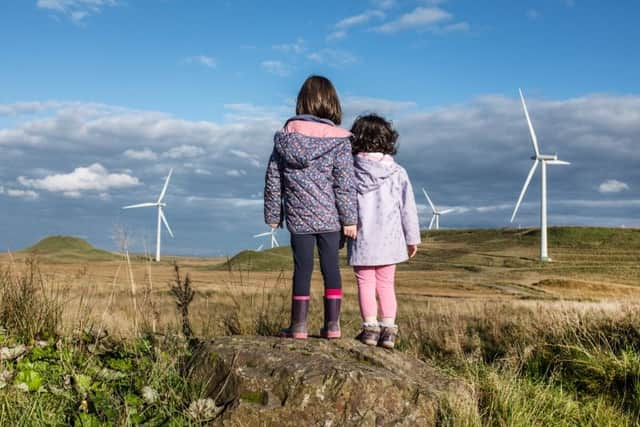Value of all Scotland’s natural resources revealed
and live on Freeview channel 276
The research, by the Office of National Statistics, examined the value or profit provided by natural resources such as wind, water, oil and gas, and how they are used. The partial-asset value of Scottish natural capital was estimated to be £273 billion – 34 per cent of the UK as a whole – in 2015.
The study found renewable energy is the fastest-growing natural resource consumed in Scotland, while oil and gas production has halved in less than two decades.
Advertisement
Hide AdAdvertisement
Hide AdElectricity generated from renewable sources was five times higher in 2017 than at the turn of the millennium and now accounts for more than half of all the country’s energy production.


Wind is the largest producer of electricity from renewable sources, overtaking hydropower as the main source of renewable energy in 2010. It accounted for 68 per cent of the electricity generated from renewables up to 2017.
Oil and gas production has steadily fallen since 1998, dropping 58 per cent in less than two decades. In 2017, combined oil and gas production in Scotland was 73.7 million tonnes of oil equivalent, down from 176.6 million tonnes.
The Scottish Natural Capital Accounts report said: “The benefits we receive from nature are predominantly hidden, partial or missing from the nation’s balance sheet. However, by recognising nature as a form of capital and developing accounts of natural capital’s contribution to the economy and our wellbeing, decision makers can better include the environment in future policy planning.”
Advertisement
Hide AdAdvertisement
Hide AdThe fish caught in Scottish waters has reached record numbers. The amount of fish captured in 2016 was more than two-thirds higher than in 2003 – a 70 per cent increase from 628.2 thousand tonnes to 1,065.2 thousand tonnes.
There was an annual expansion in fish capture of nearly 35 per cent in 2014 and an increase of 14 per cent in 2016.
Scottish environment secretary Roseanna Cunningham said: “This is the first time we have produced a detailed set of accounts which puts a monetary value on the significant benefits we get from nature.
“While this work cannot capture all of the benefits of our environment, it is a huge step forward in recognising and emphasising the importance of our natural capital.”
Advertisement
Hide AdAdvertisement
Hide AdScottish Natural Heritage chief executive Francesca Osowska said: “[This] provides an exciting opportunity to put value on many of the benefits we get from nature in a way that everyone can understand.”